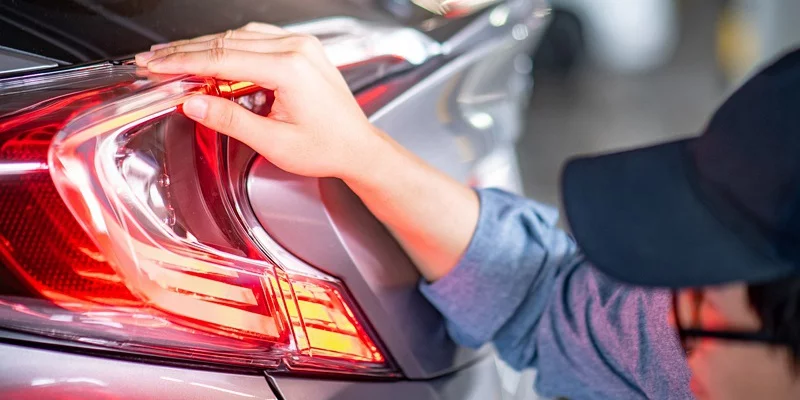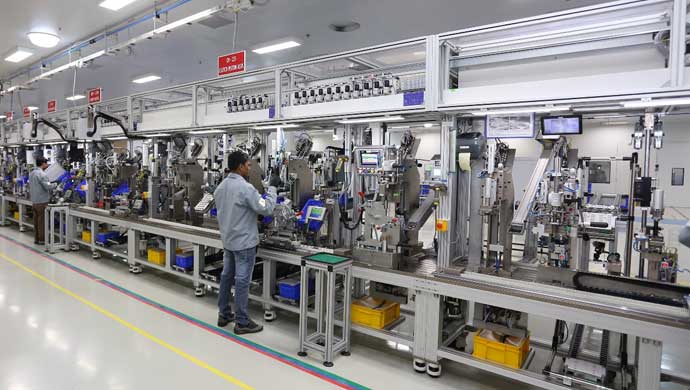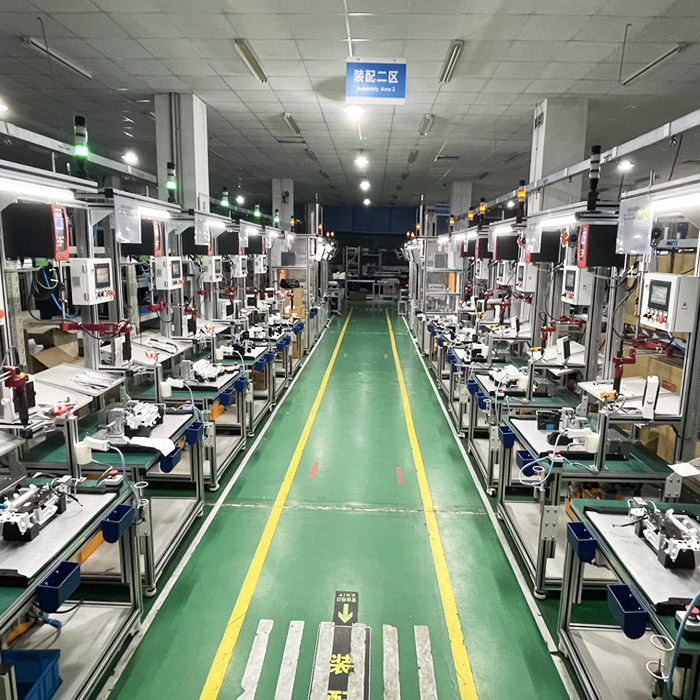Streamlining Automotive Lighting Production: The Role of Customized Assembly Lines
The automotive lighting industry is evolving rapidly, driven by the increasing demand for energy-efficient, high-performance, and technologically advanced lighting solutions. As vehicles incorporate more smart lighting features, adaptive headlamps, and LED innovations, manufacturers are turning to customized assembly lines to enhance efficiency, precision, and scalability. By integrating advanced automation, robotics, AI-driven inspection, and specialized production workflows, companies like Jinway Technology are optimizing the automotive lighting manufacturing process, ensuring superior quality and streamlined operations.
1. The Need for Customization in Automotive Lighting Production
Unlike standard manufacturing lines, customized assembly lines are designed to meet the unique technical, functional, and aesthetic requirements of automotive lighting. These systems accommodate:
► Complex component integration – LED modules, reflectors, lenses, electronic drivers, and housing components must be assembled with extreme precision to ensure proper functionality and safety compliance.
► Stringent regulatory standards – Automotive lighting must meet ECE, SAE, and DOT regulations, ensuring beam accuracy, brightness, and safety compliance.
► Diverse product variations – Manufacturers need flexible assembly systems that support multiple vehicle models and brands, allowing for customization in design, performance, and durability.
By implementing tailored automation, AI-driven quality control, and modular production setups, manufacturers increase efficiency, consistency, and product quality while reducing operational costs.
2. Key Features of Customized Automotive Lighting Assembly Lines
A well-designed custom assembly line integrates several advanced technologies to streamline production, reduce errors, and enhance product reliability. These features include:

a) Automated Handling Systems
► Robotic arms and high-speed conveyors ensure smooth movement of delicate lighting components, reducing manual handling and human errors.
► Vision-guided pick-and-place systems enhance precision, improving the alignment of LEDs, reflectors, and lenses during assembly.
b) Advanced Coating and Curing Stations
► UV anti-fog coating systems protect lenses from environmental damage, enhancing clarity and durability.
► Thermal and UV curing stations accelerate the hardening of adhesives and coatings, improving product longevity.
► Automated paint and finishing lines ensure uniform coating application, reducing defects and inconsistencies.
c) High-Precision Assembly and Sealing Equipment
► Laser welding and ultrasonic bonding provide secure, high-strength joints for LED enclosures and housings, improving waterproofing and impact resistance.
► Automated gasket application systems ensure proper sealing to prevent moisture, dust, and debris ingress.
d) Real-Time Quality Inspection and Testing
► AI-powered defect detection enables early identification of assembly errors, improving yield rates and reducing waste.
► High-speed vision inspection systems verify alignment, brightness, and beam patterns, ensuring compliance with international safety regulations.
► End-of-line functional testing simulates real-world operating conditions, validating durability, thermal resistance, and impact tolerance.
3. Advantages of Implementing Customized Assembly Lines
a) Increased Production Efficiency
► Automation reduces manual labor costs while increasing assembly speed and precision.
► AI-driven systems identify defects early, minimizing rework and production delays.
b) Higher Product Consistency and Quality
► Computer-controlled precision and robotic automation ensure uniform assembly, reducing batch-to-batch variations.
► Integrated quality control measures improve safety, brightness, and durability in LED and adaptive lighting systems.
c) Flexibility for Multi-Model Production
► Modular production lines allow manufacturers to adapt quickly to new designs and customer specifications.
► Scalable automation solutions enable quick shifts between product lines without extensive reconfiguration.
d) Sustainable Manufacturing and Cost Reduction
► Optimized material usage lowers waste, supporting eco-friendly manufacturing initiatives.
► Energy-efficient machinery and smart production planning reduce electricity consumption and operational expenses.

4. Jinway Technology: Leading the Way in Customized Assembly Lines
As a global leader in automotive lighting manufacturing solutions, Jinway Technology specializes in designing fully automated, AI-enhanced assembly lines that incorporate the latest innovations in robotic automation, UV coating systems, high-precision welding, and AI-powered inspection tools. Their end-to-end solutions provide automotive manufacturers with custom-built production lines that optimize efficiency, product reliability, and overall cost-effectiveness.
Jinway Technology’s key offerings include:
► Auto lamp assembly lines tailored to specific manufacturer needs.
► Annealing ovens and tempering systems to enhance material strength.
► AI-driven quality control solutions to ensure compliance with global safety standards.
► Flexible production systems that adapt to emerging automotive lighting trends.
5. Future Trends in Automotive Lighting Assembly
Looking ahead, the future of automotive lighting production will continue to evolve with:
► Smart factory integration – Using IoT-enabled sensors for real-time monitoring and predictive maintenance.
► Adaptive production systems – AI-driven assembly lines that adjust to new designs instantly.
► Sustainable material innovations – Eco-friendly plastics and recycled components in automotive lighting manufacturing.
Conclusion
The automotive lighting industry is moving towards greater efficiency, precision, and sustainability, driven by customized assembly lines that integrate cutting-edge automation and intelligent quality control. By adopting advanced robotic handling, AI-powered defect detection, UV coating technology, and high-speed automated assembly, manufacturers can streamline their production processes, reduce costs, and deliver superior-quality lighting solutions. Jinway Technology continues to pioneer customized automation solutions, ensuring automotive lighting manufacturers stay competitive in this fast-evolving market. By embracing these innovations, the industry is poised for a future where precision, efficiency, and smart automation define the next generation of automotive lighting production.

